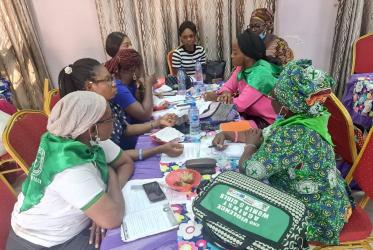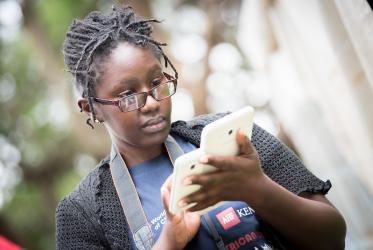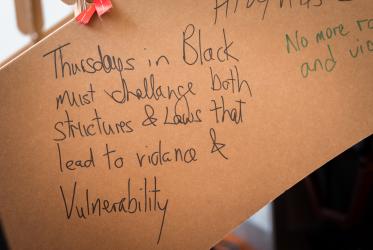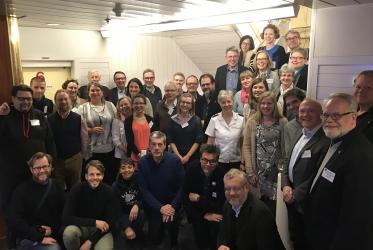Displaying 1 - 20 of 22
Nigerian churches train women and girls on human rights
20 December 2021
South Africans draw hope despite recurring challenges
16 December 2019
Churches in southern Africa stand against violence, xenophobia
10 October 2019
When you strike the women, you strike a rock
18 September 2019
Romani people seek “lives of decency, dignity, and justice”
27 September 2018
South Sudan church leaders offer Christmas season roadmap for hope
21 December 2017
Gender-based violence concerns ‘all of humanity’
11 July 2017
In Ghana, women bring open minds, honest words
05 July 2016
Religion: Way of war or path to peace?
30 June 2016
Religion: Friend or Foe of the Common Good?
16 February 2016













